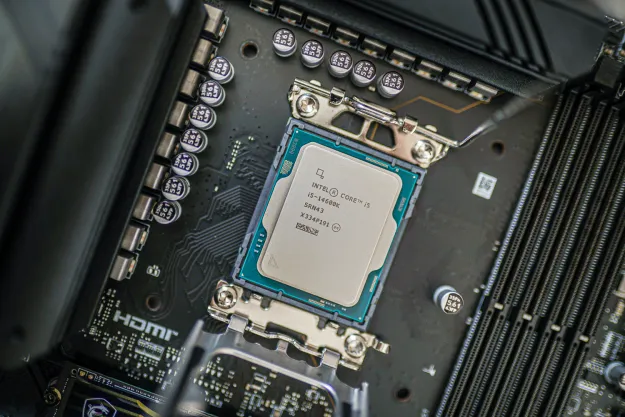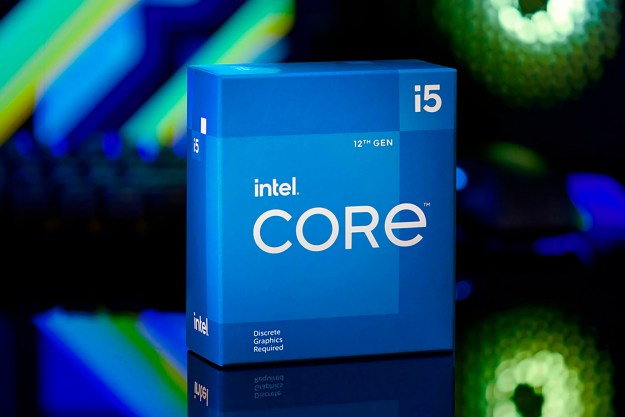No mobile processor line offers more power than Intel’s Core i9 mobile hardware, and that high bar is about to get even higher. Intel teased the introduction of its ninth-generation Core i9 processors for mobile at a private event held in San Francisco alongside GDC 2019, though the company didn’t get into details.
What the tight-lipped chipmaker did say had less to do with the processors than with the laptops they’ll appear in. The company noted every ninth-generation Core i9 mobile processor will support Wi-Fi 6 AX200, Intel Optane memory, and Thunderbolt 3 connectivity.

These features are meant to benefit both gamers and creators. Intel seems to think the new Core i9 mobile chips will appeal most to people who need high-end processor power for productivity but also like to game on the side. This idea is backed up by market research which, according to Intel, shows that half of all gamers also identify as creators. Research also found that most gamers want better battery life for their gaming laptop – though it’s not clear how the new Core i9 mobile processors will help there.
Fredrik Hamberger, Intel’s GM of Premium and Gaming Notebooks, said this information underscores the importance of getting this type of high-end processor right. “These are not just our most demanding power users,” he noted, “they are the ones that use their laptops more than any group. They spend more minutes of use per day than any of our other laptop segments.”
9th-gen Core i9 for mobile will arrive in Q2 2019.
The 9th-gen Core i9 mobile details are unofficial
While Intel isn’t willing to say much about the new mobile processors on the record, we do know a little bit about them thanks to an Intel “export compliance metrics” spotted by Anandtech. The datasheet, which includes a long roster of upcoming ninth-gen Core i9 processors for both mobile and desktop, includes an Intel Core i9-9980HK and Intel Core i9-9950H.
Both processors have eight cores and sixteen threads. The Core i9-9980HK boasts an impressive maximum turbo boost clock speed of 4.8GHz, while the Core i9-9950H slightly lowers that to 4.6GHz. The 9980HK also has 16MB of cache, while the Core i9-9950H has 12MB. Base clock speeds are unknown and the Intel integrated graphics version available remains a mystery.
The core count is the most notable trait, as the previous Intel Core i9-8950HK has six cores and twelve threads. If the spec sheet is correct, the new ninth-gen Core i9 mobile processors will be Intel’s first to up the core count to eight.
These chips will likely be flanked by ninth-gen Intel Core i5 and i7 mobile processors, though Intel said nothing about them at its GDC 2019 event.
Editors' Recommendations
- Gamers are reportedly returning Intel Core i9 CPUs in droves
- Intel just launched the ‘world’s fastest’ CPU
- Intel may have a monster new CPU coming soon
- Apple’s M3 Max appears to keep up with Intel’s top desktop CPU
- I tested Intel’s Core i5-14600K against its cheaper sibling. Don’t waste your money


